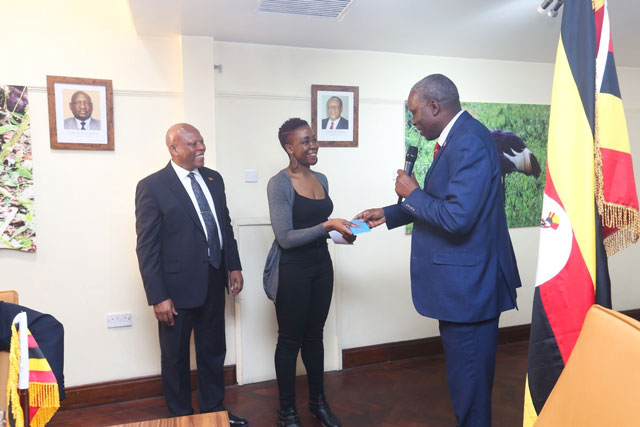
Kampala, Uganda | THE INDEPENDENT | The Civil Division of High Court in Kampala has ordered the Immigration office to give people of Somali origin citizenship as long as they fulfill requirements of the law.
The judgment issued through email by Justice Musa Ssekaana arises from a case filed in 2019 by seven members of the Somali community in Uganda and a civil society organization who had been denied citizenship by Ugandan authorities.
The members are Abdu Abucar Hussein, Abdullah Ahmed Shiek, Yahaya Yusuf, Hirsi Mohamed, Abdinassir Hussein Shire, Mohamed Abduwel Abdulla, Ahmed Noor Osman and Multiracial Community Uganda (Mcu) Ltd. The aggrieved people were born in Uganda and to Ugandan parents who they say lived in Uganda all their lives.
The petitioners sued government after the immigration office declined to give them citizenship saying that they can only acquire citizenship once they are neutralized into the community. The petitioners declined to do so arguing that they were not refugees to be neutralized but rather citizens by birth since they were born in Uganda.
The Immigration office sought the opinion of the Attorney General who opined that for as long as the people were able to prove that they were born in Uganda, they should be given citizenship by birth.
However, the Directorate of Immigration and Citizenship and the National Identification and Registration Authority denied recognition of their citizenship by birth and access to key documents like a passport and National Identity Cards- IDs.
On 15th March 2007, the Deputy Passport Control Officer, Anthony Namara wrote to all processing officers saying that “any immigration officers worth his salt must be able to tell a non-citizen from an indigenous person. He further stated that other tribes like the Somalis, Indians, Yemenis can never be citizens by birth unless there was an intermarriage with local communities as listed in the constitution,’’ wrote Namara.
The complainants were represented by Francis Gimara, Lastone Gulume and Elias Habakurama and Plasto Byabakama while government was represented by Charity Nabaasa .
Counsel for the petitioners told court that Article 9 of the 1995 Constitution provides that persons who were citizens of Uganda before the coming into force of the 1995 Constitution remain citizens whether or not they belong to indigenous community in Uganda. Counsel submitted that government however unlawfully neglected or ignored the binding opinion of the Attorney General and continued to deny the petitioners the citizenship by birth.
The petitioners’ counsel said that his clients submitted evidence of their places of birth in Uganda to the government institution and they were still not given the service. That the said people are multiracial which means that they had one parent from India, Somalia, Yemeni, Oman and some are half castes and the other parent from indigenous communities like Basoga, Baganda, Nubian, Banyankole, Batoro among others. The members of the 8th Plaintiff are born in Uganda; their parents were born in Uganda as well as their grandparents.
Uganda Citizen and Immigration Control Act, Cap.66 that provides that all persons born in Uganda one of whose parents or grandparents was or is a member of the indigenous communities existing in Uganda as of 1st February, 1926 as set out in the third schedule to the Constitution is a citizen of Uganda.
The Justice ruled that the circular issued by Anthony Namara was done in error and that s immigration officers do not have powers to determine citizenship by looking at skin color based on indigenous Ugandans which is extremely dangerous, offensive and discriminatory. The justice hence canceled Namara’s guidance of other immigration officers.
In his ruling, Justice Ssekaana also found that the petitioners were born in Uganda and that one of each of the people listed had their parents or grandparents are members of indigenous communities as indicated in the 1st February, 1926 Constitution.
“…and those born to parents or grandparents who at the time of birth were a citizen of Uganda are citizens of Uganda by birth and should be declared as such upon providing the required documentation” said Ssekaana
He further ordered that petitioners and other members of the Uganda Somali’s community that qualify for citizenship by birth are entitled to issuance and renewal of Ugandan identification and citizenship related documents.
He also directed that the Directorate of Citizenship and Immigration Control issues national identity cards to eligible applicants who are Ugandans of Somali origin as citizens by birth.
****
URN
 The Independent Uganda: You get the Truth we Pay the Price
The Independent Uganda: You get the Truth we Pay the Price


